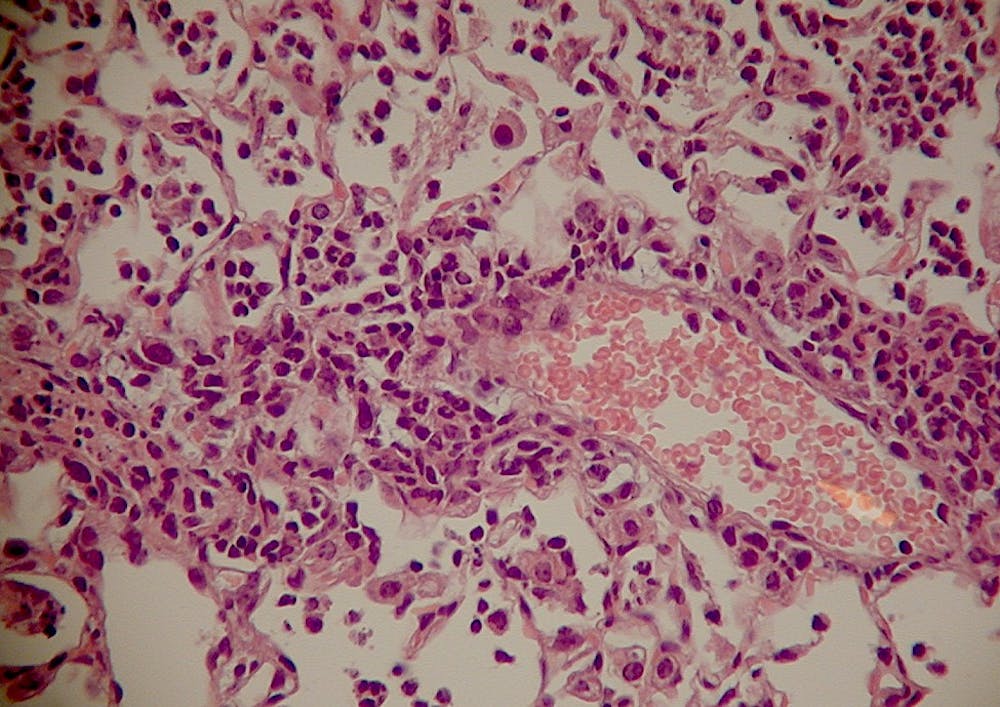Researchers Borna Mehrad and Kathryn Michels from the University’s Division of Pulmonary and Critical Care Medicine have discovered a possible alternative to antibiotics for the treatment of bacterial pneumonia. Currently, they are testing a drug that has mimicking effects of the liver hormone hepcidin.
“Pneumonia is among the most common and dangerous human infections,” Mehrad said in an email to The Cavalier Daily. “It is the fourth most common cause of death worldwide.”
Healthy people can get pneumonia, but Mehrad said there are four groups more susceptible to it — children and the elderly; people with poor immunity; those who have been hospitalized before; and people who are prone to aspiration, a medical condition in which food and saliva are easily inhaled.
“The bacteria that cause pneumonia, especially the type of pneumonia that affects hospitalized patients, are becoming progressively more resistant to the available antibiotics, ” Mehrad said. “The rate at which these bacteria acquire resistance is far higher than the rate at which we develop new antibiotics.”
Kathyrn Michels, a graduate student in Mehrad’s lab, said because the current treatment for bacterial infection is becoming less effective, their lab turned to look at how to keep iron — which bacteria need in order to grow and survive — out of the bloodstream.
Michels said there’s a widely-studied hormone called hepcidin that affects iron storage in the body. Iron is released from a cell by a protein similar to a door, and hepcidin can shut that door — hence lowering the iron concentration in bloodstreams, Michels said.
“Hepcidin has been studied so far in patients with different types of iron storage diseases and in different type of anemia,” Mehrad said. “But it has received relatively little attention in the context of infections.”
Mehrad and his lab collaborated with UCLA Profs. Tomas Ganz and Elizabeta Nemeth, who studied hepcidin’s ability to treat iron-storage diseases. Mehrad’s lab is the first lab to examine hepcidin’s usefulness in treating infection.
Mehrad’s lab gave the drug to mice that were infected with pneumonia and had iron overloaded in their whole body. They observed the protein stopped iron from being released into the blood after just after two days, curing the mice.
“This is exciting because if you had a person come in,who has bad iron overload in their whole body, our thought is that you can give them this protein to hide the iron back away again,” Michels said.
The lab has found this protein does not help healthy mice fight against infection, Michels said.
Currently, they are working on testing if they can use this drug to protect mice from infection when the systemic lack of hepcidin comes from a more complex source. They are now planning to test on animals.
“What we want to do next is … start testing if we could use hepcidin in a more complicated model of iron overload that more mimics what you might see in people,” Michels said.







